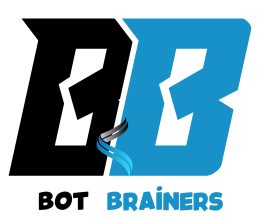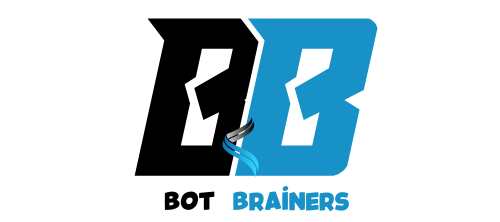Real estate professionals face unique financial challenges. Whether you’re a property manager handling a growing portfolio, a real estate agent managing commissions, or a landlord juggling rental income and maintenance costs, efficient financial management is key to success. Manual bookkeeping and generic accounting tools often fall short of meeting the specific needs of the real estate industry. That’s where specialized accounting software for real estate comes in. Designed to streamline processes like invoicing, expense tracking, tax compliance, and property-specific reporting, these tools save time, reduce errors, and provide valuable insights into your business performance.
In this guide, we’ll dive deep into the top accounting software for real estate in 2024, helping you make an informed choice tailored to your needs.
Why Accounting Software is a Must for Real Estate Professionals
Managing finances in real estate goes beyond simple income and expense tracking. It involves handling multiple properties, ensuring tax compliance, and keeping tabs on cash flow—all while navigating industry-specific challenges. Here are the key reasons why accounting software is essential for real estate professionals:
1. Managing Complex Real Estate Transactions
In real estate, each property often acts as its financial entity. For example:
- A landlord may need to track rental income, maintenance costs, and utilities for 10+ properties.
- A real estate agent must manage commissions from multiple sales and marketing expenses for listings.
Accounting software simplifies this process by allowing you to assign transactions to specific properties or projects. This ensures accurate tracking of profits, losses, and overall financial health.
2. Saving Time Through Automation
Time is a valuable asset for real estate professionals. Manual bookkeeping can consume hours, leaving less time for critical tasks like closing deals or managing properties. Accounting software automates repetitive tasks such as:
- Generating invoices for tenants.
- Sending payment reminders to clients.
- Reconciling accounts with bank statements.
This automation reduces errors and streamlines operations, freeing up your schedule for high-value activities.
3. Ensuring Tax Compliance
Tax laws for real estate professionals can be complex and vary depending on location. Accounting software simplifies tax preparation by:
- Automatically categorizing deductible expenses like repairs, depreciation, and mortgage interest.
- Generating tax-ready reports to streamline filing.
- Integrating with tax software to ensure compliance and minimize penalties.
For example, landlords can easily track deductible repairs, while agents can log mileage for property showings.
4. Gaining Real-Time Insights
Successful real estate management relies on understanding your financial position at any given time. Accounting software provides real-time dashboards and detailed reports that help you:
- Identify underperforming properties or agents.
- Forecast cash flow for upcoming months.
- Analyze trends to make informed investment decisions.
These insights are crucial for strategic planning and long-term success.
Key Features to Look for in Real Estate Accounting Software
When selecting accounting software, it’s important to choose a tool that caters to the unique needs of the real estate industry. Here are the must-have features to prioritize:
1. Property-Specific Financial Tracking
Unlike general accounting, real estate accounting software allows you to assign income and expenses to specific properties. This is essential for accurate profit-and-loss tracking and evaluating property performance.
2. Automated Invoicing and Payment Tracking
Efficient rent collection and payment management are crucial for landlords and property managers. Look for features like:
- Automated rent invoicing.
- Payment reminders for overdue accounts.
- Integration with payment platforms for seamless collections.
This ensures consistent cash flow and reduces the risk of missed payments.
3. Tax Preparation and Compliance Tools
Tax season doesn’t have to be stressful. Accounting software with built-in tax features helps by:
- Tracking deductible expenses.
- Generating tax reports that align with local laws.
- Integrating with tax filing software for smooth submissions.
5. Integration and Cloud Accessibility
In today’s digital age, cloud-based accounting software is a must. Cloud access allows you to manage finances from anywhere, whether you’re at an open house or on vacation. Additionally, integration with tools like property management systems and banking apps enhances efficiency.
Top Accounting Software for Real Estate
Here’s a detailed look at the best accounting software options for real estate professionals in 2024:
1. QuickBooks Online
Overview
QuickBooks is a versatile and widely used accounting tool that offers robust features for real estate professionals when paired with add-ons. It’s perfect for tracking income, expenses, and tax obligations.
Key Features
- Advanced reporting for detailed financial insights.
- Customizable workflows for real estate transactions.
- Bank integration for easy reconciliation.
Pros
- Scalable for businesses of all sizes.
- Integrates with property management tools.
- Excellent customer support and tutorials.
Cons
- Lacks built-in property-specific features (requires add-ons).
- The higher price point for advanced plans.
Pricing
Starts at $25/month, with additional costs for premium features.
2. Buildium
Overview
Designed specifically for property managers, Buildium combines accounting features with property management tools, making it a comprehensive solution.
Key Features
- Rent collection and tenant communication.
- Customizable financial reports.
- Maintenance tracking and task management.
Pros
- Tailored for property managers.
- Combines accounting and operational tools.
- Excellent for large portfolios.
Cons
- Expensive for small-scale landlords.
- Steeper learning curve.
Pricing
Starts at $50/month.
3. Xero
Overview
Xero is a cloud-based accounting tool that offers excellent scalability and integration options, making it ideal for growing real estate businesses.
Key Features
- Real-time financial tracking.
- Multi-currency support for international transactions.
- Integration with over 1,000 third-party apps.
Pros
- User-friendly interface.
- Strong integrations.
- Affordable entry plans.
Cons
- Requires add-ons for real estate-specific features.
- Limited customer support for lower-tier plans.
Pricing
Starts at $13/month.
4. Wave
Overview
Wave is a free accounting software solution ideal for small-scale real estate businesses or sole proprietors.
Key Features
- Invoicing and receipt tracking.
- Expense categorization.
- Basic reporting tools.
Pros
- Completely free for core features.
- Intuitive interface.
- Great for startups or sole proprietors.
Cons
- Lacks advanced features for larger portfolios.
- Limited customer support.
Pricing
Free, with optional paid services for payroll and advanced support.
5. Zoho Books
Overview
Zoho Books is an affordable accounting solution with robust features for real estate professionals managing small to medium-sized portfolios.
Key Features
- Automated workflows.
- Detailed financial and tax reports.
- Integration with other Zoho apps.
Pros
- Cost-effective.
- User-friendly dashboard.
- Strong reporting capabilities.
Cons
- Lacks advanced real estate-specific tools.
- Limited features in lower-tier plans.
Pricing
Starts at $15/month.
To read more about software visit our software blogs sections.
Comparison of Top Accounting Software
| Software | Best For | Key Features | Pricing | Pros | Cons |
| QuickBooks | Versatile portfolios | Advanced reporting, tax tools | $25/month | Scalable, customizable | Add-ons needed for properties |
| Buildium | Property managers | Rent tracking, tenant communication | $50/month | All-in-one property solution | Expensive for small portfolios |
| Xero | Growing portfolios | Real-time tracking, multi-currency | $13/month | Integrations, cloud-based | Requires add-ons |
| Wave | Small-scale professionals | Free invoicing, receipt tracking | Free | Budget-friendly | Limited scalability |
| Zoho Books | Small to medium businesses | Workflow automation, robust reporting | $15/month | Affordable, intuitive | Limited for large portfolios |
How to Choose the Best Accounting Software for Your Real Estate Business
Selecting the right software depends on your specific needs. Here are some tips to guide your decision:
- Evaluate Portfolio Size: Larger portfolios may require more advanced features.
- Consider Your Budget: Free tools like Wave are great for beginners, while premium options offer greater value for scalability.
- Assess Your Goals: Choose software that aligns with your business growth plans.
- Test Usability: Many providers offer free trials—test them to find the best fit.
Emerging Trends in Real Estate Accounting Software
The real estate industry is constantly evolving, and accounting software providers are keeping up with new technologies and trends to meet industry demands. Here are some emerging trends to consider when choosing software:
1. AI-Powered Automation
Artificial intelligence (AI) is revolutionizing real estate accounting software by automating complex tasks such as:
- Predicting cash flow trends.
- Categorizing expenses automatically.
- Generating smart insights for decision-making.
AI reduces manual effort and enhances accuracy, making it a game-changer for busy real estate professionals.
2. Blockchain Integration
Some advanced accounting tools are exploring blockchain technology for real estate transactions. Blockchain can:
- Simplify contract management.
- Provide secure and transparent transaction records.
- Streamline the process of transferring property ownership.
While this technology is still emerging, it’s worth keeping an eye on.
3. Mobile Accessibility
Real estate professionals are often on the move. Software providers are prioritizing mobile-friendly interfaces and apps that allow users to:
- Manage finances remotely.
- Access real-time data while traveling.
- Send invoices or process payments on the go.
This flexibility is particularly useful for property managers and agents handling multiple properties.
4. Sustainability and ESG Reporting
Environmental, social, and governance (ESG) factors are becoming increasingly important in real estate. Modern accounting software now includes features to track:
- Energy efficiency investments.
- Compliance with environmental regulations.
- ESG-related expenses and savings.
These tools help real estate businesses align with global sustainability goals and attract eco-conscious investors or tenants.
Real-Life Benefits of Using Accounting Software in Real Estate
Here are some real-world examples of how accounting software benefits real estate professionals:
For Landlords
- A landlord managing 20 rental properties used QuickBooks to automate rent invoicing and track maintenance expenses. This saved 10 hours a week in manual bookkeeping and helped identify the most profitable properties.
For Real Estate Agents
- An agent working with Buildium reduced tax filing errors by 25% by using its property-specific expense tracking features, resulting in significant savings during tax season.
For Property Managers
- A property management firm with 50+ units adopted Xero to integrate financial data with maintenance workflows. The real-time dashboard improved cash flow visibility, enabling better resource allocation.
Common Mistakes to Avoid When Choosing Real Estate Accounting Software
Selecting accounting software is an important decision. Avoid these common pitfalls:
1. Ignoring Scalability
Some real estate professionals choose software based on current needs without considering future growth. Always select software that can scale as your business expands.
2. Overlooking Integration Capabilities
Software that doesn’t integrate with other tools (like property management systems or CRM platforms) can lead to inefficiencies. Opt for solutions with strong integration capabilities.
3. Focusing Only on Price
While budget is important, cheaper options may lack essential features like tax compliance or reporting tools. Balance cost with functionality to ensure long-term value.
4. Skipping Free Trials
Many providers offer free trials or demos. Skipping this step can lead to purchasing software that doesn’t meet your needs. Take the time to explore features before committing.
Tax Implications for Real Estate Professionals
Real estate accounting software can simplify tax compliance, but it’s also important to understand key tax deductions and reporting requirements specific to the industry. Here are some highlights:
1. Deductible Expenses
Common deductible expenses for real estate professionals include:
- Maintenance and repairs.
- Mortgage interest.
- Advertising and marketing costs.
- Travel expenses for property viewings.
2. Depreciation Tracking
Accounting software helps calculate and track property depreciation, a valuable tax deduction that can significantly lower your taxable income.
3. Tax Reporting
Advanced tools generate tax-ready reports, helping you:
- File returns faster.
- Minimize errors.
- Stay compliant with local tax laws.
4. 1099 Reporting for Vendors
For U.S.-based landlords and property managers, accounting software can handle 1099 forms for contractors, simplifying end-of-year reporting.
Questions to Ask Before Choosing Accounting Software
To make an informed decision, ask these questions during your evaluation process:
- Does the software support property-specific financial tracking?
- Can it handle multiple users or teams if needed?
- Does it integrate with my existing property management system or CRM?
- How secure is the software? Are there data encryption and backup features?
- Is customer support available, and what are the service hours?
Conclusion
In conclusion, choosing the right accounting software for real estate is crucial for streamlining financial processes, improving accuracy, and saving valuable time. Whether you’re a real estate agent, landlord, or property manager, the right software can help you manage transactions, track expenses, and ensure tax compliance with ease. With so many options available, from QuickBooks to Xero, it’s important to consider your business’s unique needs and select a solution that offers scalability, ease of use, and robust features.


